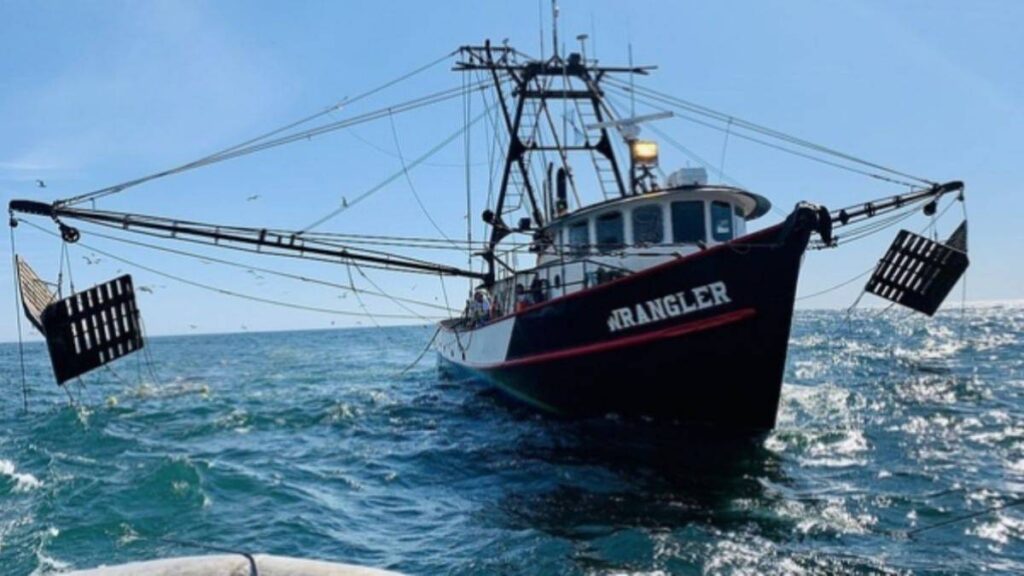
Fishermen who have had enough of a Biden administration fishing rule are taking action. Consequently, they have approached the Supreme Court in the hopes of pruning down government authority, which they believe is now overbearing.
The source of their grievance is a rule that requires fishermen to pay the salaries of government-appointed supervisors or observers. They believe that this is a step too far.
To ensure that fishermen and captains comply with the anti-overfishing policy, they must notify regulators before they venture out.
Additionally, boats must carry a sort of tracker to communicate their position on the sea to regulators. In some cases, fishermen must take a federally mandated observer along on the trip.
Also Read: SFWMD Released Footage Captures Manatees Seeking Refuge
The observer’s job is to ensure compliance with regulations and collect data about the harvest. Things were going smoothly until 2020 when the Biden administration dumped the responsibility of the observer’s salary on the fishermen. Now, each fisherman will cough out $700 in additional costs to foot the new bill.
For Bill Bright, a passionate fisherman who has made a living on the Atlantic, government regulations are good. The government has the responsibility of ensuring that fish populations aren’t depleted.
Bright even admits that the survival of their fishing activities depends on enforcing fishing limitations. If Herring becomes endangered due to overfishing, the New England lobster pots that rely on the fish for bait will take a big hit.
“My grandfather got up every morning, and he went fishing with no net sizes, no mesh sizes, no quotas, no restrictions – he just went fishing,” said Wayne Reichle, one of the opponents of the new Biden rule.
“I can’t stress enough how important it is for us to have healthy oceans and healthy fish stocks,” he said. “So, the idea that we are out overfishing or wanting to overfish is the furthest thing from the truth,” he added.
POLL—Is Climate Change a Major Threat That Requires Immediate Policy Action?
Four family-owned fishing companies have dragged the Department of Commerce to court for over a year. Both sides will argue their case before the Supreme Court. If the fishermen come out victorious, their win will mean more than having to pay $700 per day.
William Buzbee, a Law Professor at Georgetown with decades of experience in environmental and administrative law, tells us why.
“This case is not just about a few fishermen and a monitor,” he said. “This case is a vehicle to maybe recast the way our government works from top to bottom.” Buzbee listed food safety, pollution, and discrimination as other topics that could be affected by the outcome of the litigation.
The outcome of the case could also extend into other industries and limit the power of federal governments to provide regulation.
In a session with the press, the Biden administration announced that it had stopped the observer program. It also warned that taking away any portion of government regulatory powers will cause a “convulsive shock to the legal system.”
Also Read: 26 Years Later, a French Fisherman Finds a Letter in a Bottle Handwritten by a 5th Grader
For Bright and other fishermen, fishing is a passion and a source of fulfillment. All they are asking for is for the government to allow them to operate without hurting the little income they get from the highly unpredictable profession.
Fishermen are already reeling from the thousands of dollars spent on fuel, equipment maintenance, and other needs on every fishing trip. “Every day you’re out there, there’s a high cost,” Bright laments. Biden’s additional charge for observers was easily the last straw.
You Might Also Like:
“It’s Murder!” X Users Slam Greg Abbott Over Death of Migrant Children
New West Virginia Bill Requires Students to Use Bathroom According to Biological Sex
Copies of Colorado Town Newspapers Go Missing From Stands After Publishing a Rape Report
OSHA Blames Mississippi Slaughterhouse for the Death of Migrant Teen Sucked Into Machinery
Woman Bans Sister-in-Law From Her House for Not Calling Daughters by Their Names
